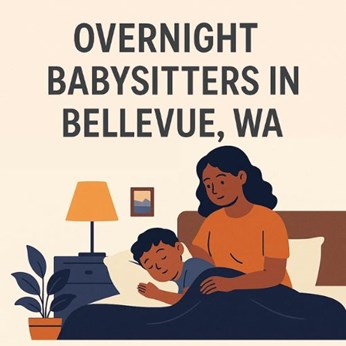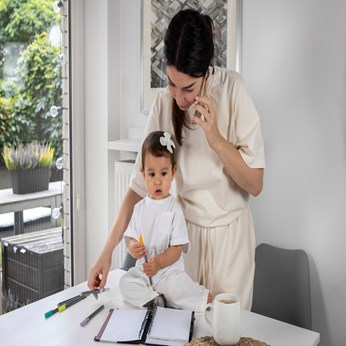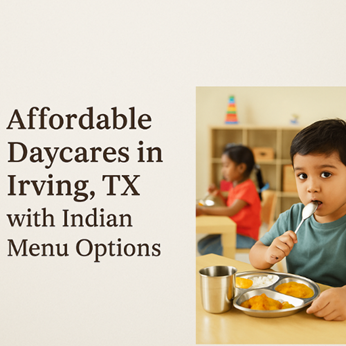5 Reasons Your Child Should Attend Preschool
There were a group of grandmothers that were discussing whether it is advisable to send children to pre-school; there were some who felt that it was not advisable to send small children to preschool, while there were some that supported the proposition and felt that preschool set the foundation for a child’s academic, emotional and social success in elementary school.
5 reasons children should be sent to pre-school:
1) Preschool provides the opportunity for growth: A child’s first experience in a structured setting with teachers and group of children is the pre-school; it provides the opportunity to not only share and follow instructions, but also provides the foundation for learning in elementary school.
2) Preschool prepares children for kindergarten: There is a difference of opinion regarding this statement with some parents believing that pre-school makes a child a success at school, with others believing that the focus on pre-math and pre-literacy skills in preschool makes the child lose on important playtime and forces the child to grow up fast. However the proper selection of a high quality pre-school where the staff understands particular ways in which young children learn and develop would help organize space, time and activities that are in line with the child’s social, emotional, cognitive and physical abilities.

3) Preschools promote social and emotional development: Quite true, young children learn to build trusting relationships with adults outside the family, with the staff of a high quality preschool keeping close personal relationship with each child in their care to nurture warm relationships among children, parents and teachers. Children thrive on consistency of care between home and school, with parents receiving periodic reports and meeting the staff regularly. The staffs of high quality pre-schools understand and respect the parent’s child-rearing goals and values. Young children are taught tactfully about social skills and emotional self-control in real time; most children learn how to notice the impact of their aggressive or hurtful behavior on another child.
4) A pre-school environment is structured though it is invisible to children: True the highly structured yet invisible structure environment of the playschool helps young children to make friends and play well with them. The classroom space is organized to encourage social interaction and minimize congestion and conflicts.
5) Young children learn to take care of themselves and others: Young children’s sense of self-worth and competence grow as they learn to do various things like washing their hands before snack time, keeping personal belongings in their "cubby," and putting away toys before moving to a new activity. This is enhanced when the teacher encourages a competent child to view herself/himself as a resource to other children; he/she is asked to help others by figuring out various things as where the sand toys are kept or how to pour water. They are introduced to various ways of how to function successfully in kindergarten classrooms like focusing attention on teacher, listen to others while they are speaking and to wait for their turn to speak.
Take the next step toward your goals
Share your requirement and find the best care providers in your area
-
Looking for a caretaker’s job? Build your profile and get in touch with families in your vicinity.
-
Discover nannies, babysitters, cooks, housekeepers, pet sitters, and elder care under one roof.
-
Get all the support you need to run a successful care center.
-
Search for appropriate centers near you depending on your needs.
Care Corner Insights: Blog Library

Overnight Babysitters in Bellevue, WA for Business-Travelling NRI Parents: Safety & Policies
For many NRI parents living in Bellevue, WA, frequent business trips are a reality. While traveling, one of the biggest concerns is ensuring your children are safe, cared for, and emotionally supported during overnight stays. Overnight babysitters ca

Indian Home-Style Cooks in Queens, NY: Tiffin-Style Weekly Meal Prep from Your Kitchen
Queens, NY, is home to one of the most diverse food cultures in the country, and Indian cuisine holds a special place among families looking for authentic, comforting meals. While restaurant takeout is convenient, nothing compares to the taste and nu

Baby Sleep Problems: What is Sleep Regression and How to Handle It
If you’re a parent, you know that baby sleep is one of the greatest mysteries of life. One day your little one is snoozing like an angel, and the next day they’re suddenly waking up every hour, fussing, or refusing to nap. Before you panic, there’s a

What is Validation Therapy? A New Approach to Dementia Care
Caring for loved ones with dementia is one of the most emotionally challenging journeys a family can face. Traditional methods often focus on correcting memory lapses or redirecting confused thoughts—but that can sometimes lead to frustration, stress

What is a Part-Time Nanny and Do You Need One
Parenting is a beautiful journey, but let’s be honest—it can also be exhausting! Between work deadlines, household chores, and family responsibilities, sometimes there just aren’t enough hours in a day. That’s where part-time nannies step in, offerin

Part-Time Housekeeper Hiring in Alpharetta, GA: Weekly Schedules, Pricing, and Must-Do Tasks
Keeping a home spotless while balancing work, family, and personal commitments can be overwhelming. For families and professionals in Alpharetta, GA, hiring a part-time housekeeper is one of the most practical solutions. Whether you need help once a

Affordable Daycares in Irving, TX with Indian Menu Options: Parent Reviews & Enrollment Tips
Finding the right daycare for your little one is never an easy decision—especially if you’re looking for one that fits your budget and offers familiar food options like an Indian-inspired menu. For parents in Irving, TX, the good news is that several

Can Babies Sleep on Their Side? Tips for Safe Baby Sleep
When it comes to newborns, every parent worries about the smallest details—how they sleep, what they wear, even which way they turn their tiny heads. One common question that pops up is: “Can babies sleep on their side?” The short answer? Not recom

8 Benefits of Hiring a House Cleaner for Your Home
Let’s be honest — keeping a home sparkling clean while juggling work, family, and daily life can feel like a full-time job in itself. That’s where professional house cleaners step in, turning the chaos into calm. If you’ve been debating whether to br

How to Care for a Gassy Baby? What’s Normal and what’s not – Expert Advice
If you’re a new parent navigating the world of burps, bubbles, and baby fussiness—welcome to the club! Gas in babies is incredibly common, especially in the first few months. But how do you know what’s normal and when it’s time to call in expert help